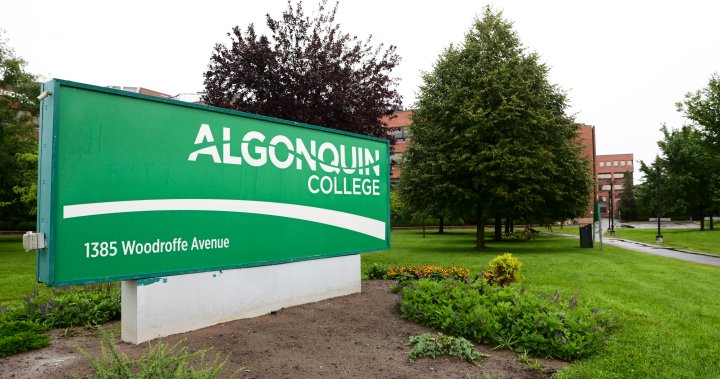Algonquin College, a cornerstone of the Perth, Ontario community since 1970, has announced the impending closure of its Perth campus, slated for August 2026. This decision stems from a confluence of financial pressures, including a federally imposed cap on international student enrollment and provincial funding shortfalls, which have collectively created an unprecedented financial crisis for the post-secondary sector in Ontario. The closure will undoubtedly leave a void in Perth, a town of approximately 6,500 residents, where the college has played a vital role in providing educational opportunities and shaping career paths for over five decades. The college’s heritage trades programs, in particular, have left an indelible mark on the town’s architectural landscape, contributing to the preservation and restoration of its historic buildings.
The closure reflects a broader trend of financial struggles within Ontario’s college system. Algonquin College President Claude Brulé cited a projected $32 million revenue loss for the current fiscal year and anticipates a staggering deficit escalating from $60 million in 2025-26 to $96 million in 2026-27 without drastic mitigation measures, including the Perth campus closure. The cap on international students, a key source of revenue for many colleges, has resulted in a substantial drop in admissions and a significant reduction in operating budgets across numerous institutions. This has forced colleges to make difficult choices, including program suspensions, staff layoffs, and even campus closures, to navigate the challenging financial landscape.
The impact of the international student cap has reverberated across Ontario’s post-secondary landscape. Several prominent colleges have taken drastic measures to address the financial fallout. Sheridan College, one of the province’s largest institutions, suspended 40 programs. Seneca College announced the temporary closure of its Markham campus due to declining enrollment. Mohawk College implemented significant cost-cutting measures, including laying off 20% of its administrative staff and suspending 16 programs. These actions underscore the severity of the financial predicament facing Ontario colleges and the difficult decisions administrators are forced to make to maintain operational viability.
While acknowledging the financial challenges faced by institutions like Algonquin College, the Ontario Ministry of Colleges and Universities maintains its confidence in the public college system and its crucial role in workforce development. The ministry emphasizes its commitment to ensuring post-secondary programs effectively prepare students for rewarding careers aligned with the province’s current and future labor market needs. The ministry recognizes the current period of “rebalancing” within the post-secondary sector and acknowledges the difficult choices institutions are making to adapt to the changing financial realities while upholding their commitment to delivering high-quality education.
Algonquin College is striving to minimize the impact of the Perth campus closure on both employees and students. The college intends to transfer all programs currently offered at the Perth campus to its Ottawa campus by the end of the Spring 2026 term, with full closure of the Perth location anticipated by August 2026. The college administration is actively working to ensure a smooth transition for students and staff, prioritizing the continuation of academic programs and minimizing disruptions to the learning experience. The decision to close the Perth campus, while difficult, is deemed necessary to address the college’s significant financial challenges and ensure its long-term sustainability.
The closure of the Perth campus marks a significant loss for the town, where the college has been deeply embedded in the community for over five decades. Mayor Judy Brown expressed disappointment at Algonquin’s departure, recognizing the college’s vital contributions to the town’s educational landscape and its broader social and economic fabric. While understanding the financial pressures driving the decision, the town acknowledges the profound impact the closure will have, particularly given the college’s role in providing accessible educational opportunities and supporting local workforce development. The loss underscores the challenges faced by rural communities in maintaining access to essential educational resources and the ripple effects of broader financial pressures on local economies.










